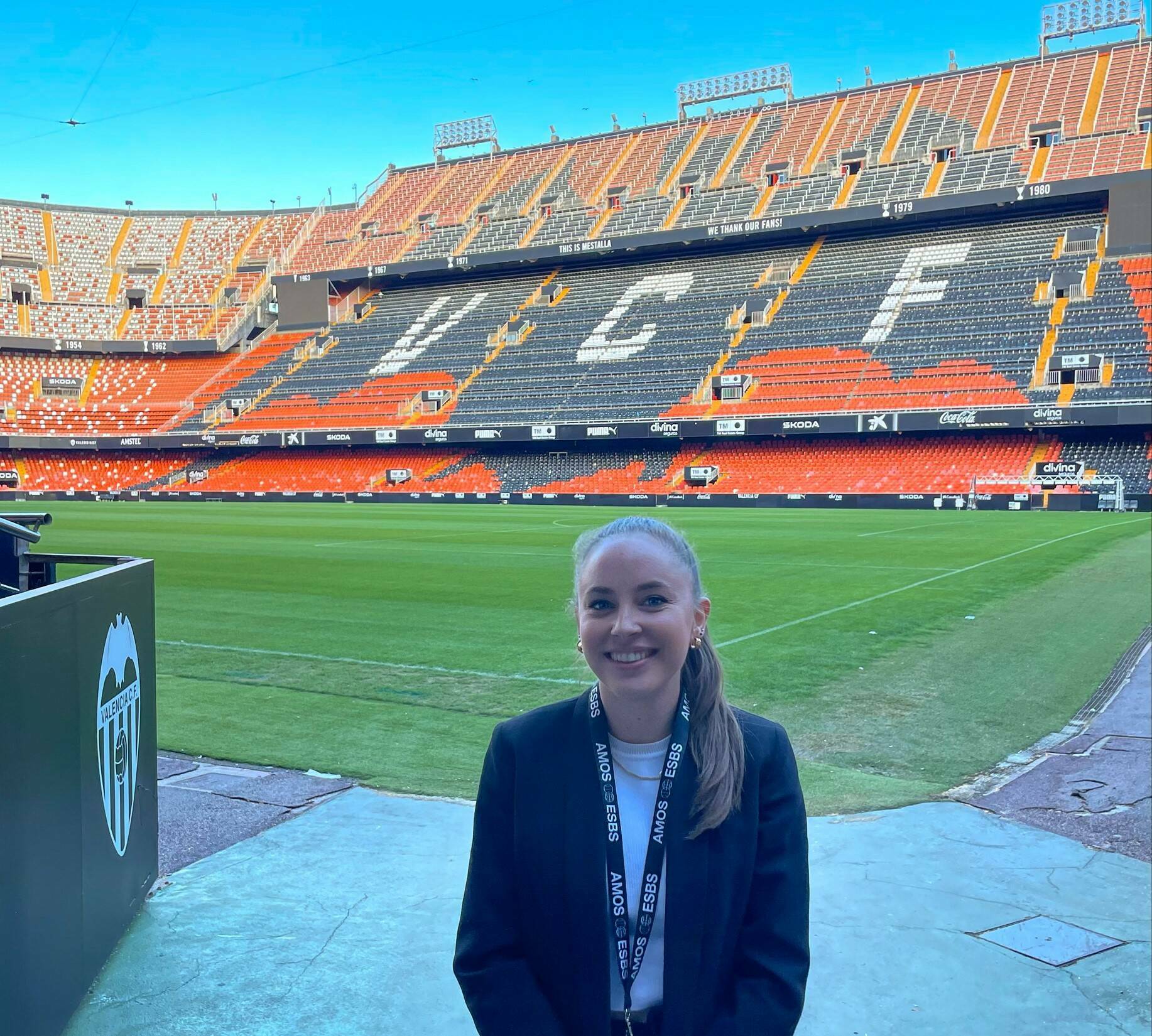Player Agent
HOW TO BECOME A PLAYER AGENT
Professional athletes cannot handle training sessions, competitions and related activities all on their own. This is why they need an agent to manage their career.
What is a Player Agent?
Primarily active in the world of soccer, these professionals assist top-level athletes in the administrative management of their career, particularly to negotiate contracts, develop their image, etc.
In 2012, according to a survey by the Centre International d’Études du Sport (CIES), there were around 350 soccer player agents. These player agents generated 35.7 million euros in sales, although only a minority make a comfortable living out of this career.
While being a player agent may seem like a dream job, the fact is that it is a highly competitive career which can hide a somewhat precarious reality. Having a good network is a prerequisite for this career. Some player agents are former sports journalists or sports federation executives. In fact, player agents usually manage several athletes at a time. According to the CIES still, in 2012 only 40% were hired on a full-time basis by players.
What are the duties of a player agent?
Player agents, also known as sports agents, are individuals who act as advisors to their clients, with a view to supporting the player’s personal and professional development. For a fee, they provide players with the best support services, whether in their everyday life or on the pitch.
Sports agents typically specialize in a specific sport and act as the player’s right-hand person. They are in charge of managing the player’s agenda, their sports activity, representing them, defending their interests, etc. They may work for soccer players, tennis players,basketball players, etc.
In addition, they act as intermediaries between clubs and players. Therefore, agents must be in constant contact with the club’s technical staff, management, players, recruiters, sponsors and the press.
To perform their job successfully and make themselves indispensable to clients, player agents must have a significant address book, to find the best players and the most profitable contracts.
In addition, they must have a background in marketing, law, asset management, financial analysis and public relations.
Because they are very close to their clients who are usually public figures, player agents bear great responsibility: protecting their client from the slightest faux pas which could destroy not only the client’s reputation but also their own and lead to the termination of their employment contract.
Whether occasionally or regularly, player agents carry out different roles to assist the athletes they represent. To make sure their clients lack for nothing, player agents must engage in various duties:
- Know and comply with the Code of sports
- Build up their clientele
- Scout players and clubs liable to recruit future top-level athletes—player agents are in charge of putting athletes in touch with clubs
- Guide and advise players in matters of day-to-day business: in managing their image, managing transfers, developing projects for the future, reviewing contracts, etc. They may also be required to watch over their clients’ entourage
- act as their clients’ representative or delegate
- convey a positive image of their clients
- negotiate the amount and terms of their clients’ contracts: player agents are always there when contracts are signed, to make sure that the agreements between the parties involved are complied with
- act as a legal advisor (managing image rights, etc.)
- Act as an investment advisor (money investment, asset management, etc.)
- consider potential career transition options for players when they retire
Key qualities and skills required of a player agent
Future player agents who wish to enter the job market fast should first win their spurs and demonstrate certain key qualities and skills to perform well in their job.
First and foremost, player agents must have a thorough knowledge of the sporting world. Origin, history, transformation, rules, players, coaches, clubs, … they should know it all.
Additionally, sports agents are expected to display unfailing professionalism. Impeccable ethics are mandatory for this job as well. Given that agents are party to their clients’ private life, they must be trustworthy. Players must feel comfortable and safe around their agent at all times.
Finally, the job requires:
- excellent interpersonal skills
- attention
- availability
- good communication skills
- good negotiating skills.
In short, a player agent’s role is to make every effort to ensure the client needs to focus exclusively on his or her athletic performances.
Salary range and career prospects
A player agent’s remuneration is very specific to the job. It consists of commissions deducted from their clients’ gross remuneration.
Sports agents can earn between 3% and 10% of their client’s salary, a substantial amount when considering the remuneration of a renowned professional athlete.
For example, if an agent’s client is paid a monthly €50K, the agent will be paid €5K gross, that is, if they earn the maximum authorized amount, i.e., 10%.
It doesn’t stop there. Sports agents are also paid a commission when a player is transferred from one club to another (transfer market). Let’s say a club sells one of its soccer players to another club for 50 million euros. The agent will receive, on average, 7% of that amount.
This means that a player agent’s remuneration depends on the client and his or her fame, the type of sport and the result of the agent’s negotiations with the clubs.
In other words, this position can come with very attractive pay, but the sector is uncertain insofar as the remuneration system is considerably unstable.
Player agents at the start of their career tend to work with “lesser known” athletes. After several years’ experience, they can move on to work with more “famous”, athletes, such as soccer players Paul Pogba, Edinson Cavani or Lionel Messi, for instance, or become sports consultants.
They will work freelance or for sports federations (i.e., the French Soccer Federation—FFF) and clubs.
What qualifications are required to become a player agent?
To work as a player agent, you need to have a baccalaureate. Once you’ve obtained your baccalauréat, it’s best to continue your studies at least as far as Bac+3. A Bachelor’s degree is a prerequisite for working as a player agent.
If you want to take on more responsibility and deepen your knowledge in the field, it’s advisable to go as far as Bac+5, so that you can obtain a Master’s degree.
Training to become a players’ agent can be undertaken at players’ agent schools that offer agent training. Schools specializing in sports, such as AMOS, can give you the opportunity to work alongside professionals in this sector.
The profession of players’ agent is not easy to get into. Places are limited and the job is highly selective. You need to be motivated, resourceful and passionate to stand out from the crowd.
International profiles are increasingly sought after in this profession. If you’re interested in becoming a player agent, it’s a good idea to study abroad for part or all of your studies, to increase your chances of getting into the highly competitive world of sports business, especially soccer.
Primarily active in the world of soccer, these professionals assist top-level athletes in the administrative management of their career, particularly to negotiate contracts, develop their image, etc.
In 2012, according to a survey by the Centre International d’Études du Sport (CIES), there were around 350 soccer player agents. These player agents generated 35.7 million euros in sales, although only a minority make a comfortable living out of this career.
While being a player agent may seem like a dream job, the fact is that it is a highly competitive career which can hide a somewhat precarious reality. Having a good network is a prerequisite for this career. Some player agents are former sports journalists or sports federation executives. In fact, player agents usually manage several athletes at a time. According to the CIES still, in 2012 only 40% were hired on a full-time basis by players.
Player agents, also known as sports agents, are individuals who act as advisors to their clients, with a view to supporting the player’s personal and professional development. For a fee, they provide players with the best support services, whether in their everyday life or on the pitch.
Sports agents typically specialize in a specific sport and act as the player’s right-hand person. They are in charge of managing the player’s agenda, their sports activity, representing them, defending their interests, etc. They may work for soccer players, tennis players,basketball players, etc.
In addition, they act as intermediaries between clubs and players. Therefore, agents must be in constant contact with the club’s technical staff, management, players, recruiters, sponsors and the press.
To perform their job successfully and make themselves indispensable to clients, player agents must have a significant address book, to find the best players and the most profitable contracts.
In addition, they must have a background in marketing, law, asset management, financial analysis and public relations.
Because they are very close to their clients who are usually public figures, player agents bear great responsibility: protecting their client from the slightest faux pas which could destroy not only the client’s reputation but also their own and lead to the termination of their employment contract.
Whether occasionally or regularly, player agents carry out different roles to assist the athletes they represent. To make sure their clients lack for nothing, player agents must engage in various duties:
- Know and comply with the Code of sports
- Build up their clientele
- Scout players and clubs liable to recruit future top-level athletes—player agents are in charge of putting athletes in touch with clubs
- Guide and advise players in matters of day-to-day business: in managing their image, managing transfers, developing projects for the future, reviewing contracts, etc. They may also be required to watch over their clients’ entourage
- act as their clients’ representative or delegate
- convey a positive image of their clients
- negotiate the amount and terms of their clients’ contracts: player agents are always there when contracts are signed, to make sure that the agreements between the parties involved are complied with
- act as a legal advisor (managing image rights, etc.)
- Act as an investment advisor (money investment, asset management, etc.)
- consider potential career transition options for players when they retire
Future player agents who wish to enter the job market fast should first win their spurs and demonstrate certain key qualities and skills to perform well in their job.
First and foremost, player agents must have a thorough knowledge of the sporting world. Origin, history, transformation, rules, players, coaches, clubs, … they should know it all.
Additionally, sports agents are expected to display unfailing professionalism. Impeccable ethics are mandatory for this job as well. Given that agents are party to their clients’ private life, they must be trustworthy. Players must feel comfortable and safe around their agent at all times.
Finally, the job requires:
- excellent interpersonal skills
- attention
- availability
- good communication skills
- good negotiating skills.
In short, a player agent’s role is to make every effort to ensure the client needs to focus exclusively on his or her athletic performances.
A player agent’s remuneration is very specific to the job. It consists of commissions deducted from their clients’ gross remuneration.
Sports agents can earn between 3% and 10% of their client’s salary, a substantial amount when considering the remuneration of a renowned professional athlete.
For example, if an agent’s client is paid a monthly €50K, the agent will be paid €5K gross, that is, if they earn the maximum authorized amount, i.e., 10%.
It doesn’t stop there. Sports agents are also paid a commission when a player is transferred from one club to another (transfer market). Let’s say a club sells one of its soccer players to another club for 50 million euros. The agent will receive, on average, 7% of that amount.
This means that a player agent’s remuneration depends on the client and his or her fame, the type of sport and the result of the agent’s negotiations with the clubs.
In other words, this position can come with very attractive pay, but the sector is uncertain insofar as the remuneration system is considerably unstable.
Player agents at the start of their career tend to work with “lesser known” athletes. After several years’ experience, they can move on to work with more “famous”, athletes, such as soccer players Paul Pogba, Edinson Cavani or Lionel Messi, for instance, or become sports consultants.
They will work freelance or for sports federations (i.e., the French Soccer Federation—FFF) and clubs.
To work as a player agent, you need to have a baccalaureate. Once you’ve obtained your baccalauréat, it’s best to continue your studies at least as far as Bac+3. A Bachelor’s degree is a prerequisite for working as a player agent.
If you want to take on more responsibility and deepen your knowledge in the field, it’s advisable to go as far as Bac+5, so that you can obtain a Master’s degree.
Training to become a players’ agent can be undertaken at players’ agent schools that offer agent training. Schools specializing in sports, such as AMOS, can give you the opportunity to work alongside professionals in this sector.
The profession of players’ agent is not easy to get into. Places are limited and the job is highly selective. You need to be motivated, resourceful and passionate to stand out from the crowd.
International profiles are increasingly sought after in this profession. If you’re interested in becoming a player agent, it’s a good idea to study abroad for part or all of your studies, to increase your chances of getting into the highly competitive world of sports business, especially soccer.






